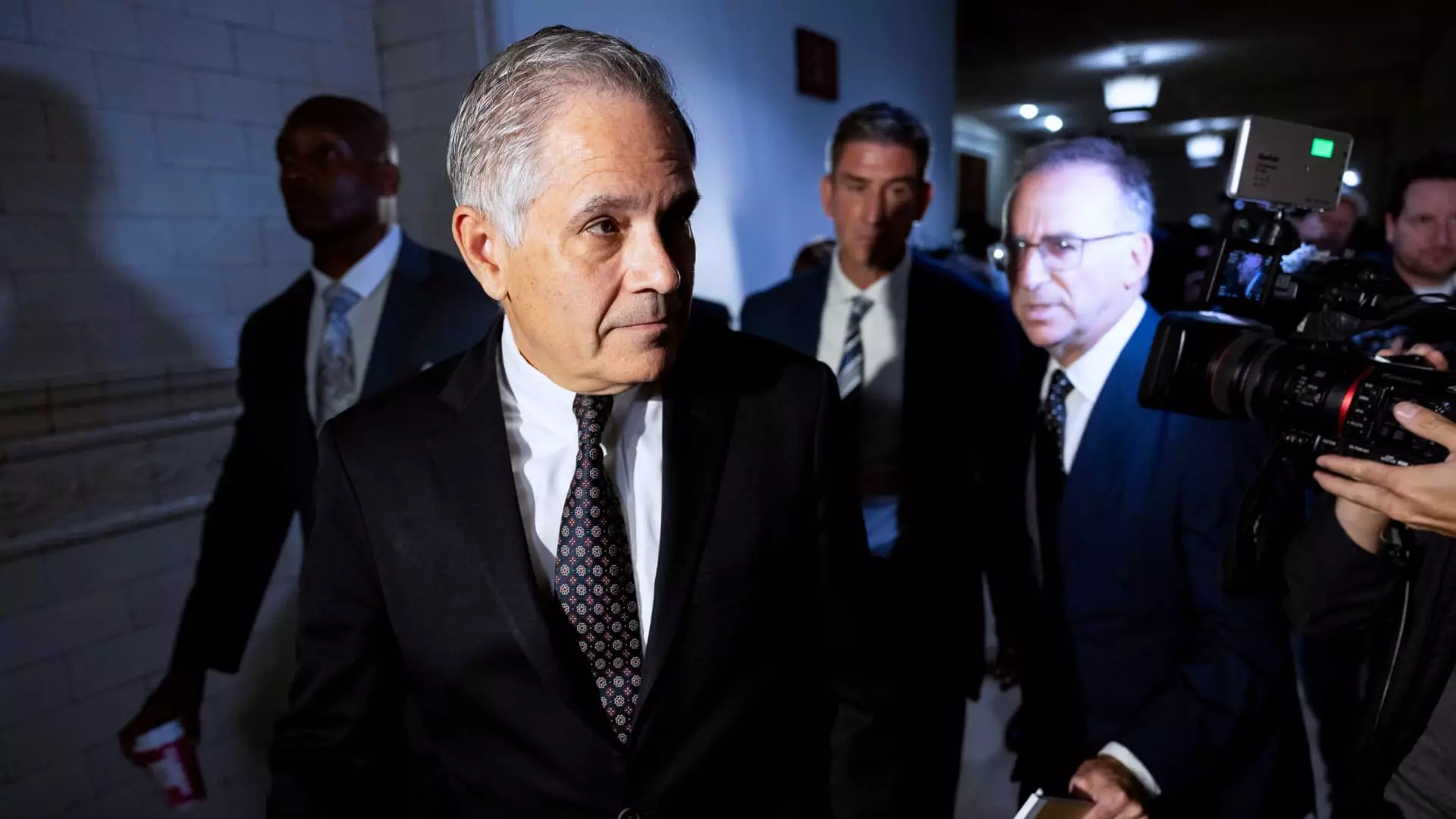In a striking court appearance earlier this week, Philadelphia District Attorney Larry Krasner raised serious accusations against Tesla CEO Elon Musk and his political action committee, America PAC. The central issue at hand involves a $1 million giveaway being promoted before the impending elections in swing states such as Pennsylvania. Krasner’s testimony depicted a situation where he believes Musk and his PAC are well aware of the legal violations associated with this promotion, labeling it as an “illegal lottery” designed to manipulate electoral participation. This legal battle is not just another court case; it epitomizes the growing intersection of politics, corporate influence, and legal ethics in America.
At the center of Krasner’s arguments is the assertion that Musk’s actions constitute a merging of political campaigning and unlawful gambling practices, which undermines both consumer protection laws and lottery regulations. His remarks during the court session highlighted a critical perspective: no individual, irrespective of their wealth or influence, holds a First Amendment right to engage in illegal activities. Krasner’s explicit claims that the giveaway is a scam invoke the legal principle that while free speech is a foundational element of democracy, it does not extend to the perpetration of fraud. This delineation is vital as it brings to light the broader implications of how political financing can sometimes cross ethical boundaries.
Critically, the testimony also indicates that Krasner’s motivations are not tainted by partisanship, despite his Democratic affiliation. His assertion that he drives a Tesla himself underscores a personal investment but does not detract from his professional responsibilities. In his responses to questioning, Krasner suggested he would pursue legal action against any high-profile figure, regardless of political alignment—an important reminder that accountability should be a non-partisan initiative. This stance emphasizes the complexity of navigating between personal convictions and professional duties, especially in a highly charged political climate.
On the other side of the courtroom, Chris Gober, the former treasurer of America PAC, struck a defiant tone against the accusations leading to claims that Krasner aims to “silence Elon Musk.” Gober’s testimony painted a picture of the giveaway as a contractual agreement rather than a lottery, arguing that individuals volunteered in exchange for becoming spokespersons for the PAC. This rephrasing of the nature of the giveaway attempts to sidestep the legal definitions typically associated with lottery systems. However, Gober’s assertion that the term “randomly” has interchangeable meanings with “by chance” raises eyebrows. His attempt to justify the process at hand was viewed by Krasner and his attorney as an admission of liability, thereby complicating the defenses presented.
The ongoing litigation presents more than just a legal dispute; it serves as a critical examination of the evolving relationship between finance, politics, and ethics. Krasner’s investigation into the nature of the recipient selection process raises fundamental questions regarding transparency and trust within political engagement strategies. As this case unfolds, the potential ramifications for political donations and giveaways could be monumental, influencing how PACs operate in the future. Moreover, it reflects growing scrutiny over the ways influential individuals can sway elections and public perception through financial incentives.
Ultimately, this showdown encapsulates a broader narrative regarding the integrity of American democracy. The juxtaposition of wealth against legal boundaries not only tests the limits of the First Amendment but also challenges the notion of electoral fairness and transparency. As the legal proceedings advance, observers remain keenly aware that the outcome could set precedents affecting any future political contributions, particularly those accompanied by alluring incentives designed to attract voter engagement.
This case paints a complex and cautionary tale about the intersection of ambition, legality, and ethical responsibility—one that will undoubtedly reverberate across political forums for years to come. As constituents, voters must remain vigilant and discerning, ensuring that the political landscape does not become a playground for the affluent, thus preserving the sanctity of democratic processes.


Leave a Reply